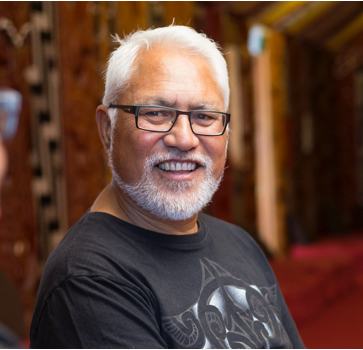Legal personality for maunga, awa and other natural features of the land
Laws have been passed in New Zealand to give a separate legal personality (identity) to several natural features (regions, rivers and mountains) that are important for Māori.
This means that those natural features of the land are recognised by the law as having their own separate legal identity. This is similar to how a registered company or incorporated society has its legal identity separate from the individual people that are its shareholders or members. Granting legal personality to these maunga, awa or rohe is intended to give iwi the legal right and ability to protect their ancestors.
In this section we explain which natural features now have a legal personality and more about what this means legally.
Which natural features of the land now have legal personality in Aotearoa?
Te Urewera Act 2014, Te Awa Tupua (Whanganui River Claims Settlement) Act 2017, Te Anga Pūtakerongo – Record of Understanding 2017
In 2014, New Zealand became the first country in the world to grant legal personality to a natural feature, Te Urewera – the mountainous region bordering Hawkes Bay and the Bay of Plenty. This means Te Urewera has the same legal status as an individual person.
In 2017, legal personality was also granted to Whanganui Awa, the Whanganui river.
Later in 2017, the government (“the Crown”) and Taranaki iwi signed a Record of Understanding to state their shared intention that legal personality will be granted to Taranaki Maunga (Mount Taranaki) as well.
These natural features were granted legal personality following lengthy Treaty of Waitangi negotiations between the government and the different iwi that have ancestral connections with them. Te Urewera, Whanganui Awa and Taranaki Maunga are considered to be ancestors and taonga, as well as sources of food, shelter and spiritual connection for their people.
What exactly does legal personality mean for a region, mountain or river?
Te Urewera Act 2014 Te Awa Tupua (Whanganui River Claims Settlement) Act 2017 Te Anga Pūtakerongo – Record of Understanding 2017
Those two Acts of 2014 and 2017 have given Te Urewera and Whanganui Awa “all the rights, powers, duties, and liabilities of a legal person”. Governing boards or offices, made up of representatives of iwi and the government, have been set up to act in their interests.
Applying the idea of legal personality to things like regions and rivers is quite new, but the idea has been applied to organisations in New Zealand and overseas for a long time. Looking to the example of separate legal personality for registered companies and incorporated societies can give us some idea of what having this legal status may mean for natural features. Companies and incorporated societies can own property, sign contracts, pay taxes on their income, hire staff, and sue and be sued in court.
By contrast, if you set up an informal community organisation, this won’t be recognised by the law as a separate legal entity that can do things like own land in its own name – only the individual people who make up the organisation would be able to do that. However, if you were to then “incorporate” your community group under the Incorporated Societies Act (which means literally to make a separate body out of it), your group would then be recognised as a separate legal person by the law.

